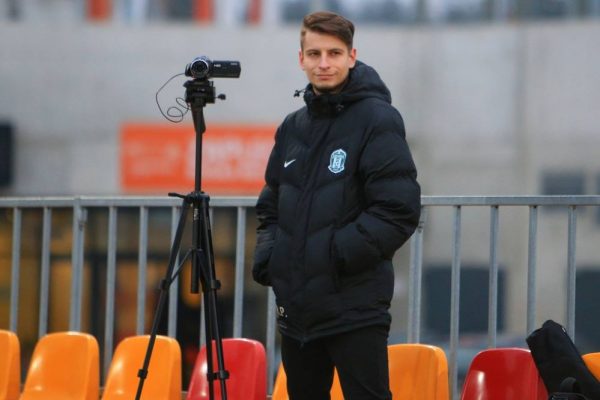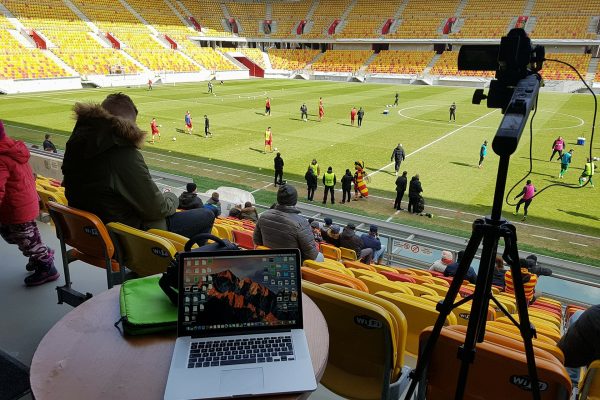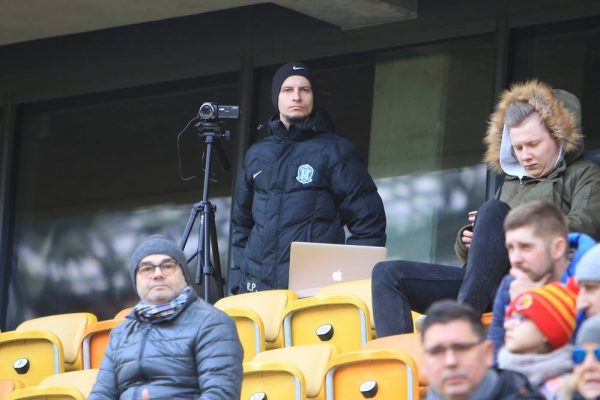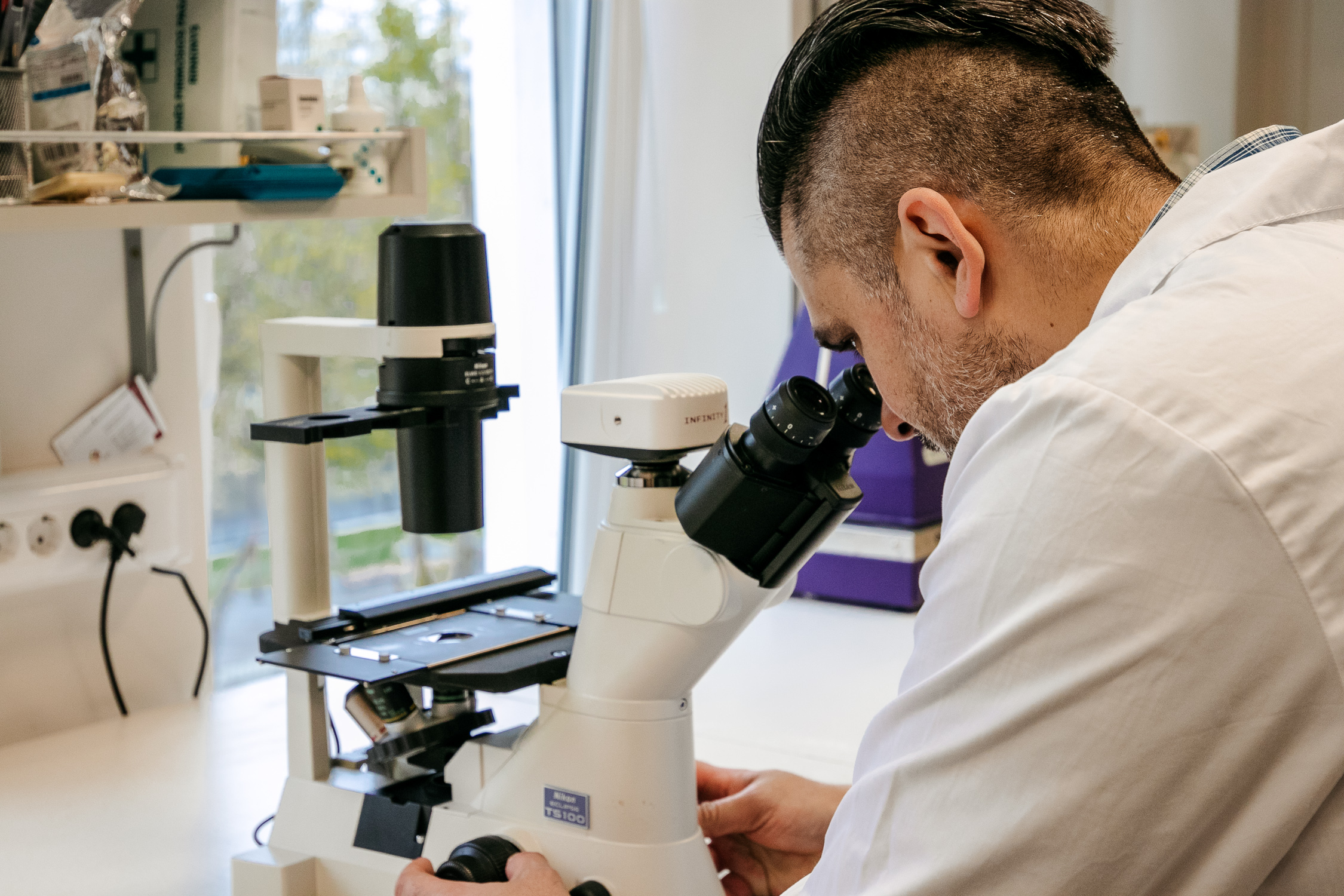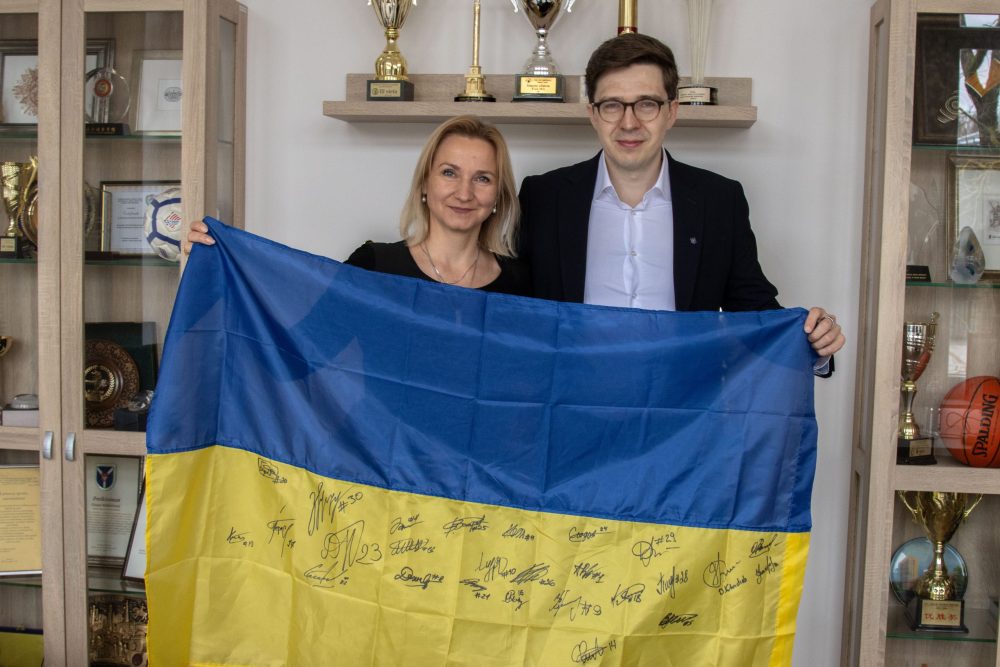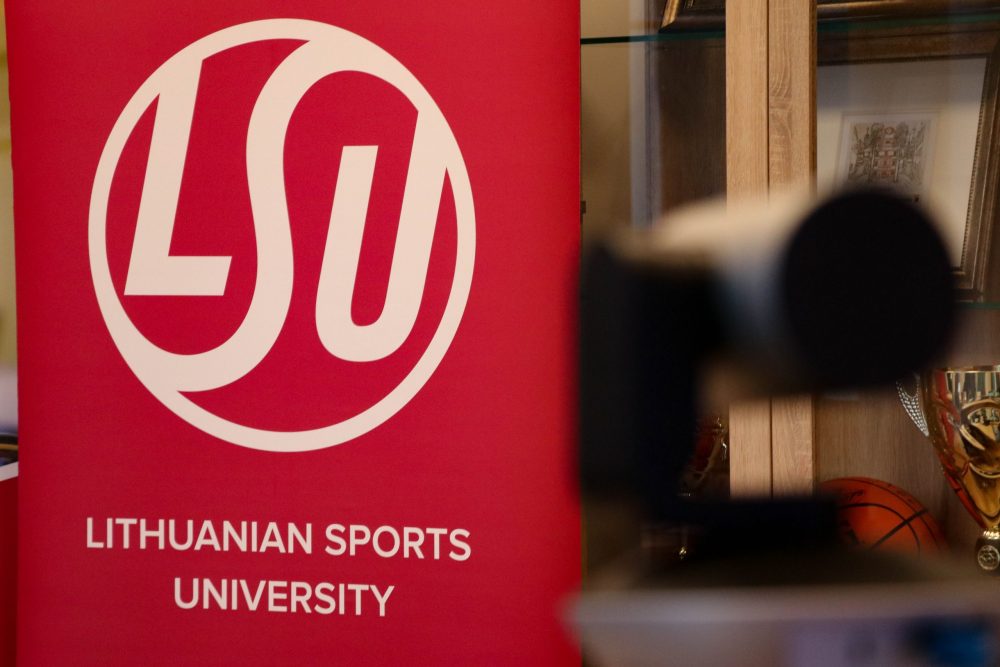The graduate of LSU Master’s degree study programme International Master in Performance Analysis of Sport (IMPAS), sports analyst at FC Vilniaus “Zalgiris” Rokas Pranaitis looked for a career path for several years. After graduating from Sports Coaching study programme, he had doubts about becoming a coach and suddenly learned about a new international programme. “At that time, this specialty seemed to be something unique and close to me. As a child, I used to organize imaginary championships, rewrite tournament tables and various statistics in a notebook, and Excel was my best friend. Statistics, data collection, analysis, data mapping in tables and graphs, looking for trends is what I like,” said R. Pranaitis.
He says that during the studies at LSU he also enjoyed the opportunity to accumulate experience at Otto von Guericke University (Germany) and the University of Trás-os-Montes and Alto Douro (Portugal), as Lithuanian Sports University and these universities jointly run the IMPAS programme. Most of all, R. Pranaitis enjoyed a semester at university in Portugal (IMPAS students spend each semester at different university). “Here I went deeper into notational analysis – a science of tactics and strategy in a team sport. During the semester, almost all the attention is devoted to football. The time spent in Portugal pushed me forward, gave me inspiration and desire to learn… Undoubtedly, other modules in IMPAS programme provided a lot of knowledge about the analysis of sporting activities, I became more diverse, but still, my focus was on the module of the analysis of competitions. Inspired by an interesting semester I decided to write a cover letter to Stats4sport where I could carry out my practice,” said R. Pranaitis.
The LSU graduate revealed some details about his work. He is responsible for analysing video material at the football club: he records all the workouts and matches. The material is provided to coaches and players together with the analysis. “During the match, I live tag the most important episodes of matches using the SportsCode programme, and if necessary, players are shown some episodes, tactical decisions of the opponents and our mistakes during the brake. According to this, the head coach presents tactics for further game. The most difficult, but most interesting part of the work is a post-match analysis. If the match was unsuccessful and took place late in the evening, I know that I will have a sleepless night, since I have to provide an analysis in the morning. My computer is like an entire database of teams and players. I have no doubt that it would be possible to write a number of bachelor’s or master’s final thesis using the data,” said R. Pranaitis.
The graduate considers work together with FC Vilniaus “Zalgiris” head coach Aurelijus Skarbalius as an interesting and exceptional experience. The head coach appreciated the fact that R. Pranaitis had not only theoretical but also practical knowledge, which he had gained learning from one of the best specialists in the field of performance analysis of sport Marius Babravičius. “In FC Vilniaus “Zalgiris” we use a lot of technologies; it is difficult to imagine a modern club without them. All decisions made by the coaches are closely related to the data provided by technology. Not only an analyst or a physical training coach uses the data, but also a goalkeeper coach. The club has SportsCode as well as Stats4Sport programmes, which help to manage the team, track the attendance of the players, place video material of training sessions and matches, monitor player test results and game statistics. In addition, FC Vilniaus “Zalgiris” uses Catapult system for analysing players’ physical data. The system helps control the process of training and dosing the athletes’ workload,” said R. Pranaitis.
The LSU graduate states that the University developed him as a personality, directed towards the right path, provided a basis, but practice contributed to his professional career the most. “I recommend to students practice as much as possible, work hard and pursue their dreams, because this really pays off. It is hard to imagine a modern professional sports club without the latest technology. In my opinion, only a professional sports team can manage the training process, track game trends, work consistently, and reach the highest goals. Not all football clubs in Lithuania or their coaches understand the importance of technology. The need for sports analysts in Lithuanian football and other sports will grow, and in the Western European countries they have already been working for several decades,” said Rokas Pranaitis.
More information about IMPAS study programme


